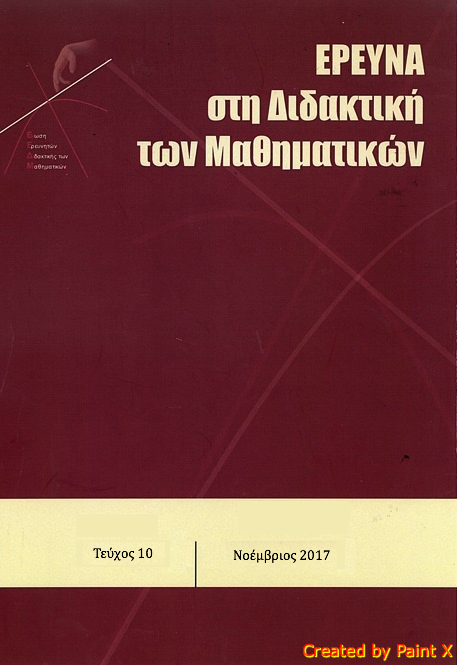TEACHING MATHEMATICS TO STUDENTS WITH INTELLECTUAL DISABILITY. LEARNING IN GENUINE ENVIRONMENTS SUPPORTED BY PARENTS AND SCHOOL

Abstract
The present study is part of a broader action research, where the teaching of mathematics to students with intellectual disability and the students’ learning of mathematics are considered as socially and culturally integrated processes. The aim of the research was to study how the establishment of school and family collaboration influences the educational process and the active participation of the students in social activities that contribute to the development of mathematical thinking. The students participated in activities involving money dealings, while the mothers were encouraged to engage their children in similar actions implemented outside of the school context. The results showed that discussions with the mothers reinforced the choice of learning objectives and learning contexts that make sense to the students. On the contrary, factors such as mothers’ perceptions about social inclusion- and mainly for stigma of people with disabilities-limited students’ active participation in activities outside the school context.
Article Details
- How to Cite
-
Χρυσικού (Vasiliki Chrysikou) Β. (2017). TEACHING MATHEMATICS TO STUDENTS WITH INTELLECTUAL DISABILITY. LEARNING IN GENUINE ENVIRONMENTS SUPPORTED BY PARENTS AND SCHOOL. Research in Mathematics Education, (10), 73–90. https://doi.org/10.12681/enedim.15224
- Section
- Articles

This work is licensed under a Creative Commons Attribution 4.0 International License.
Authors who publish with this journal agree to the following terms:
Authors retain copyright and grant the journal right of first publication with the work simultaneously licensed under a Creative Commons Attribution licence that allows others to share the work with an acknowledgement of the work's authorship and initial publication in this journal.
Authors are able to enter into separate, additional contractual arrangements for the non-exclusive distribution of the journal's published version of the work (e.g. post it to an institutional repository or publish it in a book), with an acknowledgement of its initial publication in this journal.
Authors are permitted and encouraged to post their work online (preferably in institutional repositories or on their website) prior to and during the submission process, as it can lead to productive exchanges, as well as earlier and greater citation of published work (See The Effect of Open Access).


